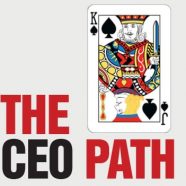
The purpose of a corporation is undergoing wide scrutiny today – i.e. continue to focus on shareholder profits or broaden its goal to embrace all stakeholders? Last year chief executives in the Business Roundtable representing the 181 largest U.S. companies met and committed to “lead their companies for the benefit of all stakeholders – customers, employees, suppliers, communities and shareholders.”
Since then other drivers have reinforced this fundamental transformation. Covid-19 has heightened broad expectations that companies should serve all stakeholders, especially in light of all health issues and the turmoil that American workers are now experiencing. Also, Joe Biden has joined in the criticism of “shareholder capitalism” by insisting that companies have “a responsibility to their workers, their community and their country.”
But will this transition to “social economics” really happen? Are CEO’s willing and even capable of delivering on such promises to widen their company’s reach? And will meaningful initiatives ever be implemented to credibly overcome social injustices like racism, sexual harassment and inequality, and also support climate change enactments?
There is speculation that CEO’s may not have the resolve or skills to address all these social issues. The Wall St. Journal recently reported (“Stakeholder Capitalism Seems Mostly for Show”, 8-6-20) that most chief executives believe their companies are already meeting Stakeholder Capitalism standards as defined by the Business Roundtable. Furthermore most CEO’s surprisingly did not try to get approval for this new Business Roundtable commitment from their Board of Directors.
A Practical Example
To make stakeholder capitalism work, CEO’s must recognize the wide variety of extenuating social implications from big strategic decisions. For example, suppose a CEO for an auto company has to decide on a proposal to close a plant producing gasoline cars in the upper Midwest, and open a new plant producing electric cars further south. Normally his/her focus would be mainly on which option yields greater profits for shareholders. But new expectations will demand executives to be broadly competent social planners rather than narrowly focused profit maximizers. Here are some critical stakeholder issues that must now be addressed more thoroughly:
- Impact on Workers and Community – the hurt and economic losses from such a move versus the gains for new workers at the new plant
- Racial Issues – what are the ramifications for such inequality and other social injustice moves
- S. or Mexico – a new plant in South Carolina may have lower costs than in Michigan, and even lower costs in Mexico, so how important is it to provide jobs for American workers.
- Climate Change – a transition to electric cars may incur significant near term costs, but will the long term benefits of lower emissions justify the risks of lower profits.
This question of shareholder versus stakeholder capitalism may seem theoretical to many, but the actual implications can be acute and pervasive in real life. Starting with the taxation changes in the Reagan years, the income gap has continued to expand and has led to intensive activist repercussions today. Attitude and trust matter, and the divisive perspectives have become more passionate in the past few years. CEO’s may think that donating to a charitable cause is enough, but the public is likely to perceive this as just “paying lip service” and not enough to really change our attitudes, values and culture.
Further complicating this transformational shift is how to judge the social performance of a CEO. Whereas a stock price is often used to determine how well a CEO is serving his/her shareholders, there is no similar metric to judge how effectively a chief executive is serving society as a whole. In short, will the CEO brand profile adjust to the growing expectations of tomorrow’s stakeholders.


